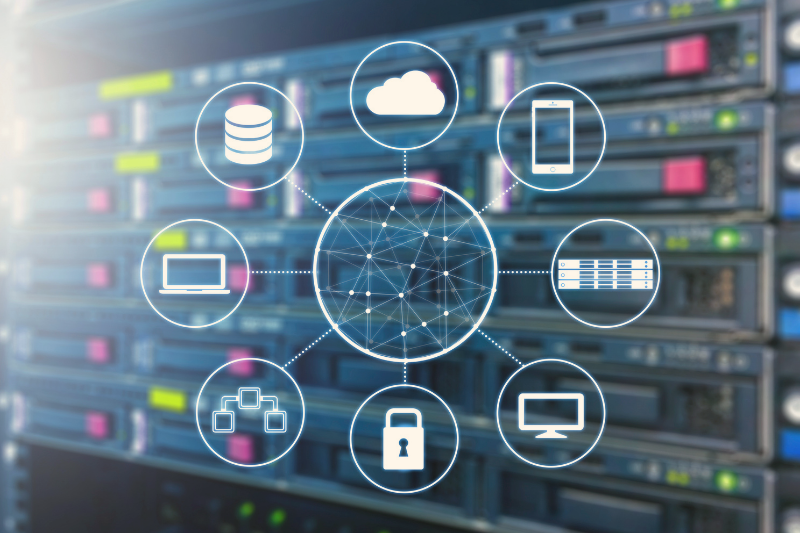One of the biggest challenges businesses face today is maintaining the continuity and performance of their digital systems. Any disruption or issue in these processes can slow down workflows and lead to potential losses. This is where solutions such as monitoring and alarm management come into play, ensuring that business processes operate seamlessly and securely. These two powerful tools not only allow for the continuous observation of existing system performance but also enable instant detection of possible issues, allowing for rapid response.
In this article, you’ll discover how monitoring and alarm management can make a difference in your business and learn how to choose the right solutions.
What is Monitoring?
Monitoring is a method used to continuously observe and analyze the performance of a system or application. In business processes, monitoring is used to detect every type of issue—from network performance to application errors. This system continuously monitors the status of critical infrastructure components such as servers, databases, network devices, and applications. Thanks to monitoring tools, system administrators can detect potential problems before they arise and intervene swiftly.
The most significant advantage of monitoring in business processes is its ability to minimize errors and downtimes. Even the slightest slowdown in a system can result in major consequences across an enterprise. However, with monitoring, these problems can be identified before they escalate, helping to maintain workflow continuity.
The Impact of Monitoring on Business Processes
Monitoring systems continuously observe all components in an enterprise’s infrastructure, serving as a crucial tool for improving efficiency and ensuring uninterrupted business processes.
By continuously tracking system performance, monitoring identifies potential bottlenecks and slowdowns in advance. This enables businesses to operate without interruption and use their resources most efficiently. An uninterrupted workflow boosts customer satisfaction and reduces workforce losses.
Monitoring systems can identify problems within the infrastructure even before they occur. This is especially vital for ensuring the smooth operation of critical components such as data centers, servers, and network systems. Once potential issues are detected, necessary interventions can be made quickly, preventing large-scale failures.
The benefits of monitoring not only help businesses track current system performance but also prepare for potential risks in the future. These systems offer a proactive approach, helping businesses maintain more reliable and sustainable operations.
What is Alarm Management?
Alarm management works in tandem with monitoring systems and notifies administrators when predefined threshold values are exceeded. Alarm management provides automatic alerts in cases such as critical errors or performance issues, allowing for rapid intervention. This ensures that disruptions in business processes are resolved quickly and continuity is maintained.
Alarm management can be customized according to specific criteria. For example, if a server exceeds a certain CPU usage rate or if a network device slows down significantly, an alarm is instantly triggered. Alerts can be sent via email, SMS, or through an integrated system. This process allows administrators or IT teams to respond swiftly to potential problems, minimizing downtime.
Early Detection of Problems with Alarm Management
Alarm management enables the instant detection of critical events within the system, allowing for fast resolution. This brings significant advantages to businesses, especially in minimizing downtimes and performance issues.
By instantly identifying infrastructure-related issues, alarm management notifies system administrators. These alerts enable teams to address problems quickly and significantly reduce the duration of interruptions. This quick response is particularly important for critical systems, as it minimizes operational losses and restores systems swiftly.
Alarm management is not limited to detecting problems; it also helps control them through proactive measures taken in advance. This prevents disruptions in business processes and ensures operational continuity. The benefits of alarm management make it easier for businesses to cope with unexpected situations and create a more efficient long-term working environment. With alarm management, companies can adopt a more proactive approach to their infrastructure and maintain secure, uninterrupted operations.
The Benefits of Monitoring and Alarm Management in Business Processes
Monitoring and alarm management are critical for ensuring that business processes run smoothly. The advantages they offer enhance business competitiveness while helping provide uninterrupted and high-quality service to customers.
Key benefits of these systems include:
Monitoring systems detect potential errors in advance, and alarm management provides immediate response capabilities in critical situations. This minimizes downtime and ensures business continuity.
Monitoring continuously observes system performance to identify bottlenecks and slowdowns. When addressed quickly through alarm management, this improves overall business efficiency.
Failures or attacks in the infrastructure can lead to data loss. Alarm management detects such threats early, ensuring data security.
Access to real-time data about system status helps managers make quick and informed decisions. In emergencies, alarm management supports the fast execution of critical decisions.
Early detection of system issues prevents major breakdowns and costly repairs. Monitoring and alarm management help reduce unnecessary expenses and support budget efficiency.
Combined Use of Monitoring and Alarm Management
Using monitoring and alarm management together ensures more efficient and secure execution of business processes. When these two systems work in integration, systems are constantly monitored, and potential issues are instantly identified and addressed through alarm management.
How the Two Systems Work Together:
While monitoring tracks all system processes in real time, customizable alarm settings ensure that critical events are quickly reported to administrators. This integration provides proactive issue detection and resolution, creating significant advantages for business operations. Real-time monitoring and proactive troubleshooting enable businesses to operate seamlessly.
Benefits of Continuous Monitoring and Rapid Intervention:
Monitoring allows continuous analysis of system performance and instant detection of potential risks and errors. As a result, businesses can minimize downtime and respond swiftly to problems with alarm management. The combined use of monitoring and alarm management ensures uninterrupted operations and sustained system performance.
What to Consider When Choosing Monitoring and Alarm Management Solutions
When choosing monitoring and alarm management solutions, it is crucial to consider the specific needs of your business. Every company differs in size, industry requirements, and infrastructure; therefore, selecting the right solution plays a vital role in the efficient operation of business processes.
Here are the key factors to consider when selecting monitoring and alarm management solutions:
Conduct a needs analysis: Identify your business needs and choose appropriate monitoring and alarm solutions accordingly.
Look for real-time monitoring capabilities: Choose solutions that allow for real-time observation and immediate intervention.
Check for customizable alarm settings: Opt for systems that let you create alerts tailored to your business, ensuring instant notifications for critical events.
Prioritize easy integration: Select solutions compatible with your current infrastructure that can integrate with other applications and systems.
Choose scalable solutions: Go for systems that can expand in parallel with your business growth and offer flexibility.
Prefer 24/7 monitoring and support: Services that offer continuous monitoring and technical support enable fast responses to potential problems.
Look for proactive problem-solving capabilities: Systems that can detect and address issues before they occur ensure uninterrupted business operations.
Consider security features: Choose solutions that ensure data security and can detect and respond to threats instantly.
Identifying the Right Monitoring and Alarm Management Solutions for Your Business
The first step is to select solutions tailored to your business size and operational processes. Features like real-time monitoring, customizable alarm settings, and easy integration allow you to adapt the system to your specific needs. Scalable solutions also enable system capacity to grow alongside your business.
Synchron enhances your business processes by offering 24/7 monitoring and support, comprehensive reporting, and security services. Its proactive problem-solving capabilities allow potential issues to be identified and resolved before they occur. You can confidently meet your monitoring and alarm management needs with Synchron’s expert team.
İletişim Bilgilerinizi Bırakın, Size Hemen Ulaşalım!
Synchron destek ekibine 7/24 erişebilir ve her sorununuza kısa süre içinde çözüm bulabilirsiniz.
Telefon: +90 216 978 81 91



